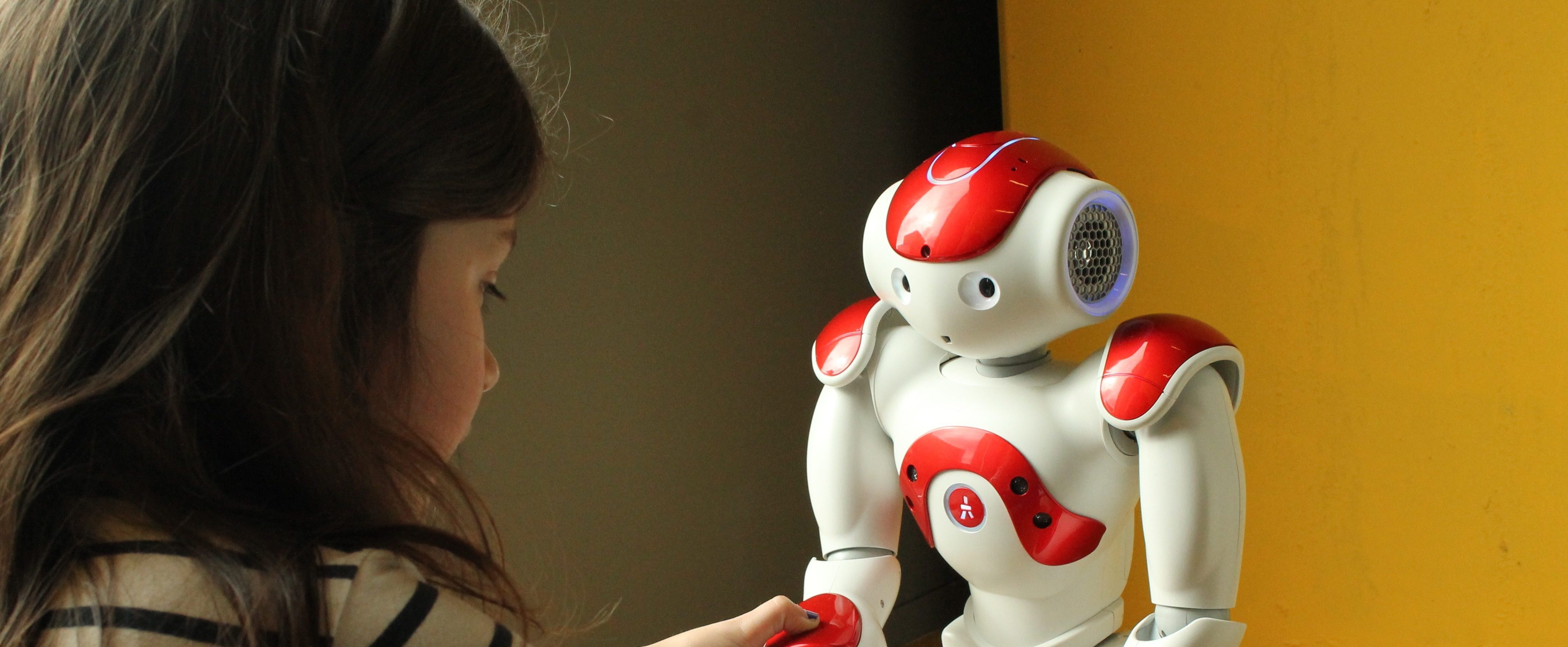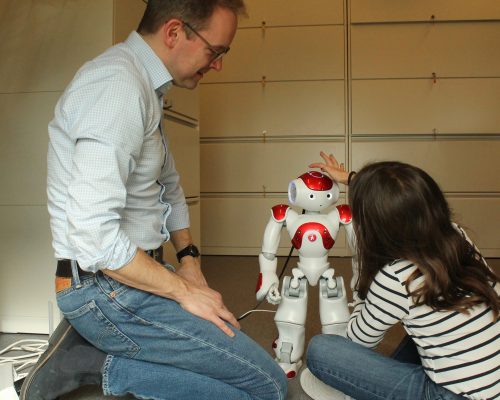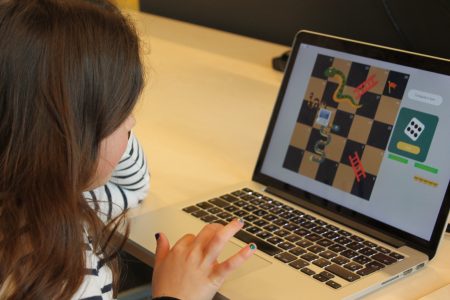Robots are becoming increasingly prominent in our society. They are no longer simply used to carry out practical tasks, but nowadays also engage in social interactions with people. Robots that can interact with people in a meaningful way are called ‘social robots’. Not only adults, but also children increasingly encounter social robots. To a child, such a robot can be a conversation partner, but also an educational tool. Because while relatively little is known about child-robot interaction, robots rapidly become more present in children’s lives. Therefore, the CHILDROBOT project aims to investigate the interaction between children and social robots.
We are located at the Amsterdam School of Communication Research (ASCoR), an institute within the University of Amsterdam. Our research is financially supported by the European Research Council. We aim to answer three questions. First, which factors play a role in children’s (long-term) robot acceptance? Second, how do social relationships between children and robots emerge, and which factors influence the development of closeness and trust? And third, which social skills can children learn from a social robot?


